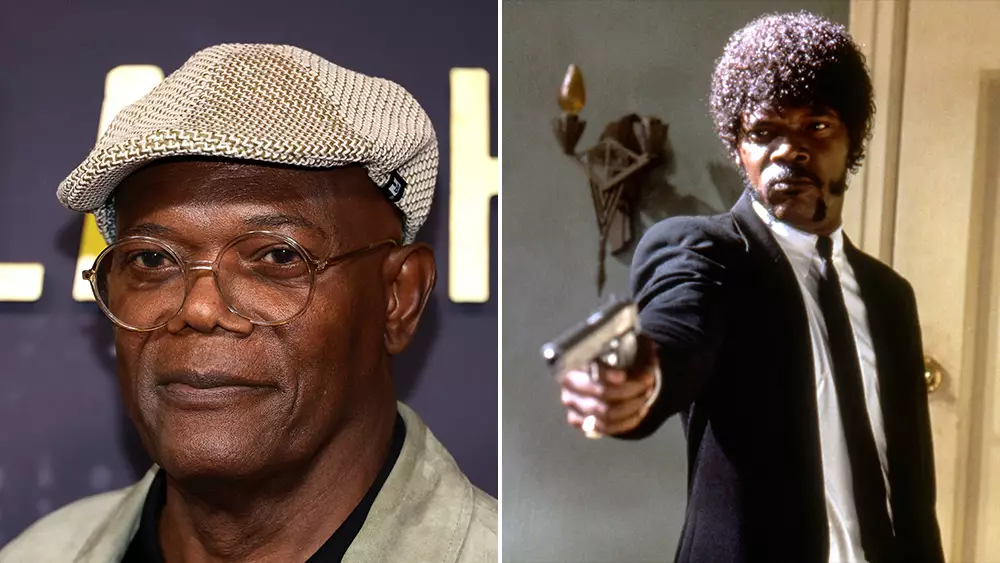Samuel L. Jackson’s recent Instagram post celebrating the 30th anniversary of Quentin Tarantino’s iconic film Pulp Fiction serves as a powerful reminder of his remarkable talent and the cultural impact of the film. In a video clip, Jackson recited the legendary Ezekiel 25:17 passage, a moment that has become iconic in film history. As he performed the monologue with impressive composure and conviction, it was evident that his skills have not waned over the decades. The passage narrates themes of righteousness, vengeance, and the complexities of good versus evil, encapsulating the film’s overall essence. Jackson’s ability to deliver this intense dialogue flawlessly reinforces his role as one of the finest actors of his generation.
Pulp Fiction is often heralded as a cinematic masterpiece, a film that boldly redefined the crime-comedy genre through its innovative narrative structure and memorable characters. Following the intertwining lives of hitmen Vincent Vega (John Travolta) and Jules Winnfield (Jackson) amidst a backdrop of Los Angeles’s criminal underbelly, Tarantino’s film explores themes of morality, redemption, and existentialism. The ensemble cast, featuring talents like Uma Thurman and Bruce Willis, contributed to the movie’s multifaceted storytelling and its ongoing legacy in popular culture. This film not only carved a niche for Tarantino in Hollywood but also paved the way for independent filmmaking in the early ’90s.
The scene where Jackson’s character recites Ezekiel 25:17 showcases the transformation of dialogue into artistic expression. The intense delivery and rich textures of his voice illustrate how words can elicit a wide range of emotions from the viewers, making them feel both fear and awe. This moment has transcended the film’s context to become a societal reference point, quoted in various formats across media, further solidifying Jackson’s portrayal of Jules as a cultural icon. The way he modulates his tone for dramatic effect enhances the gripping nature of the monologue, and its reflection on vengeance and justice resonates deeply with audiences.
Jackson’s heartfelt acknowledgment of the film’s 30-year journey is not just a personal reflection or a celebration of success; it is a recognition of the collaborative effort that went into creating a enduring piece of art. The film’s legacy, and Jackson’s place within it, highlights the continuous dialogue between creators and audiences. As he asserts, “YOU KNOW I STILL GOT IT!!!,” Jackson emphasizes the vitality of his craft, suggesting that not only has he maintained his skills, but they have also evolved. Pulp Fiction remains relevant not just for its bold storytelling but also for the depth of its characters, forever linking Samuel L. Jackson to the film’s narrative fabric.
The anniversary of Pulp Fiction acts as a reminder of the film’s significant cultural impact and the exceptional talent of Samuel L. Jackson. As audiences celebrate this milestone, one can only anticipate how films like this will continue to inspire future generations of actors and filmmakers alike.

